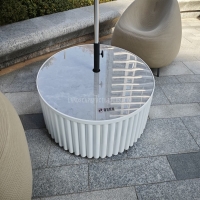Welcome to the website for landscape facilities products and knowledge.
What are the best materials for resisting chemical corrosion?
Chemical corrosion is a major concern in industries and laboratories where exposure to aggressive substances can degrade materials over time. Selecting the right corrosion-resistant materials ensures longevity, safety, and cost-efficiency. Here are the best options:
1. Stainless Steel (316L Grade) – Highly resistant to acids, chlorides, and saline environments, making it ideal for chemical processing and marine applications.
2. Hastelloy (C-276) – A nickel-molybdenum alloy with exceptional resistance to oxidizing and reducing agents, commonly used in harsh chemical plants.
3. PTFE (Teflon) – A fluoropolymer with unmatched chemical inertness, perfect for seals, gaskets, and lab equipment linings.
4. Titanium – Resistant to chlorides, nitric acid, and seawater, often used in aerospace and medical implants.
5. Ceramics (Alumina, Zirconia) – Non-reactive and heat-resistant, suitable for extreme chemical and thermal environments.
For optimal performance, consider material compatibility with specific chemicals and environmental conditions. Combining these materials with protective coatings can further enhance durability. Investing in corrosion-resistant solutions minimizes maintenance costs and extends equipment lifespan.
Related search:

Recommendation
Round metal tube border design table with tempered glass or granite countertop on the top.